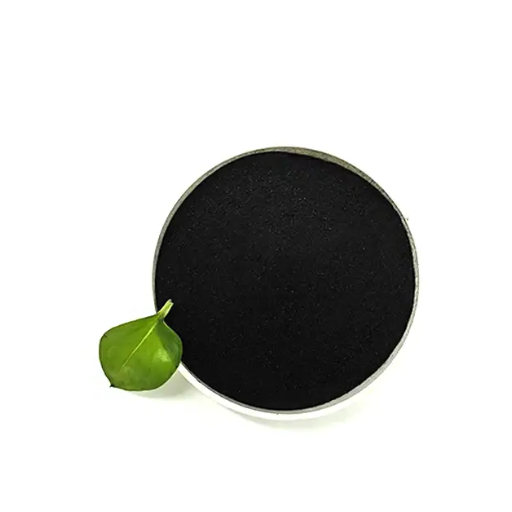Introduction to Organic Water-Soluble Fertilizers
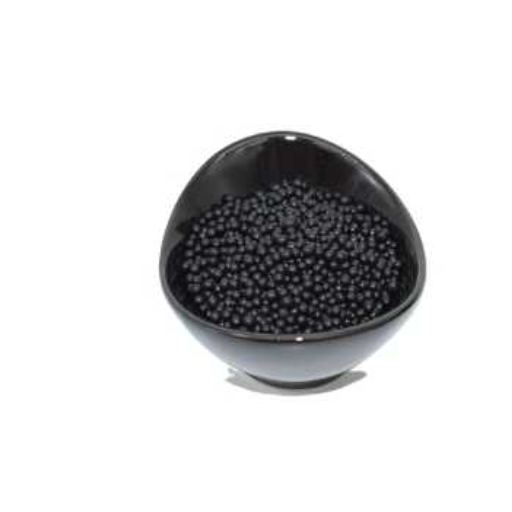
What Are Organic Water-Soluble Fertilizers?
In fertilizers, the organic-type water-soluble option contains plant nutrients that can be completely dissolved in water. Being dissolved in water allows the mixture to be easily and uniformly applied to soil or foliar spray. Such fertilizers become organic because the raw materials are derived from natural sources, such as:
- Plant extracts
- Compost
- Animal byproducts
These fertilizers provide all the major nutrients; primary nutrients include nitrogen, phosphorus, and potassium, which are quickly absorbed by plants to facilitate rapid growth and health.
Key Benefits: They are best-bred for organic farming practices and are free from synthetic chemicals that interfere with nitrogen fixation in the soil, soil contamination, water pollution, and other types of ecological disturbances.
Also, an essential aspect worthy of note is their ease of use. Water solubility affords these fertilizers a perfect match with modern irrigation systems, such as:
- Drip irrigation systems
- Sprinkler systems
- Hydroponic systems
Purpose and Popularity Among Gardeners
The water-soluble fertilizers are of utmost importance to gardeners since they promote speedy nutrient absorption, thus promoting plant health. Their function is to supply required nutrients to plants in a dissolved form sufficient for direct plant absorption so that no nutrient deficiency is restricted due to insufficient availability.
What adds to the popularity of these fertilizing substances is their versatility and adaptability:
- Immediate dissolution: They dissolve instantly into water
- Multiple application methods: Can be applied via watering-can or irrigation system
- Uniform distribution: Ensures even nutrient spread around root zones
- Scalable use: Suitable for both small container gardens and large-scale landscaping
Types of Plants Benefiting from Water-Soluble Solutions
Since water-soluble fertilizers apply nutrients to plants instantly, they are very important for a large variety of plants:
Leafy Vegetables
- Lettuce
- Spinach
- Kale
These crops react well to water-soluble solutions since nutrient availability must be consistent to ensure their leafy growth.
Flowering Plants
- Petunias
- Roses
- Marigolds
These plants benefit from specific nutrition during bloom processes, especially phosphorus, and potassium.
Fruiting Crops
- Tomatoes
- Strawberries
- Peppers
These crops need to be controlled fertilization to ensure balanced nutrients for high-quality fruit production.
Benefits of Using Organic Water-Soluble Fertilizers
Improving Soil Health
Organic water-soluble fertilizers are known to enhance soil health by increasing microbial diversity within the soil ecosystem. Unlike synthetic fertilizers that often disturb nature’s balance of soil organisms, organic alternatives carry beneficial microorganisms into soils.
Key soil health improvements include:
- Enhanced microbial activity: Decomposition of organic matter into plant-absorbable forms
- Better soil structure: Increased porosity and water-holding capacity
- Slow nutrient release: Steady supply without leaching
- Soil remediation: Counteracts degradation from continuous agricultural activities
Enhancing Plant Growth
Modern agricultural techniques combined with organic fertilizers create powerful plant growth enhancement:
- Precision Agriculture: GPS mapping and satellite imagery for optimal application
- Controlled Environment Agriculture (CEA): Indoor growing with regulated conditions
- Microbial Inoculants: Beneficial microorganisms that can increase yields by up to 30%
Reducing Chemical Runoff and Environmental Impact
Sustainable agriculture practices help minimize environmental damage while maintaining productivity:
| Practice | Environmental Benefit | Reduction Percentage |
|---|---|---|
| Precision Agriculture Technologies | Reduces excess fertilizer usage | Up to 25% nitrogen reduction |
| Buffer Strips and Vegetative Barriers | Traps nutrients and sediment | 40-50% phosphorus, 75% sediment reduction |
| Cover Cropping | Prevents erosion and nutrient leaching | 48-70% nitrate leaching reduction |
| Integrated Pest Management (IPM) | Reduces chemical pesticide use | 40% pesticide reduction |
| Controlled Release Fertilizers (CRFs) | Minimizes runoff and leaching | 20-40% nitrogen runoff reduction |
Types of Organic Water-Soluble Fertilizers
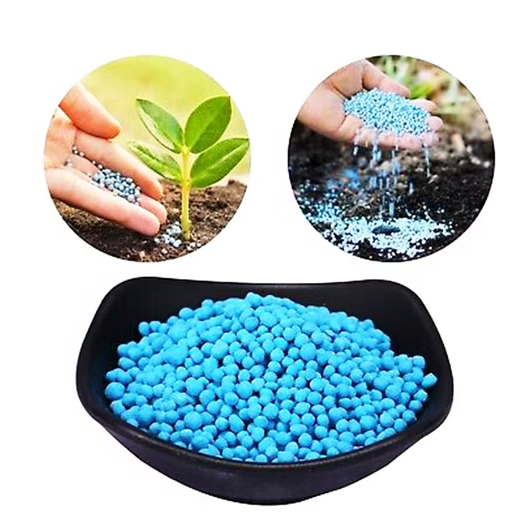
Liquid Fertilizers
Liquid fertilizers offer highly concentrated and immediately available nutrients to plants. They provide several key advantages:
- Immediate nutrient provision: Rapid uptake with minimal environmental loss
- Precision application: Applied through fertigation or foliar spray
- Enhanced stability: Chelated micronutrients remain soluble across pH ranges
- Flexible scheduling: Can be adjusted to plant growth phases
Granular Fertilizers
Granular fertilizers are solid, particulate nutrient sources with distinct benefits:
- Easy handling and storage: Convenient packaging and application
- Slow-release properties: Long-term nutrient availability
- Customizable formulations: Tailored to specific crop needs
- Advanced coating technology: Controlled dissolution rates
- Precision application: Variable rate equipment compatibility
Natural Fertilizer Mixes
Natural fertilizer mixes combine various organic and mineral components:
| Component | Primary Benefit | Nutrient Focus |
|---|---|---|
| Compost | Builds organic matter | Balanced nutrients |
| Bone Meal | Slow phosphorus release | Phosphorus, Calcium |
| Blood Meal | Quick nitrogen source | Nitrogen |
| Rock Phosphate | Long-term phosphorus | Phosphorus |
| Green Manure Crops | Soil improvement | Nitrogen fixation |
How to Use Organic Water-Soluble Fertilizers Effectively
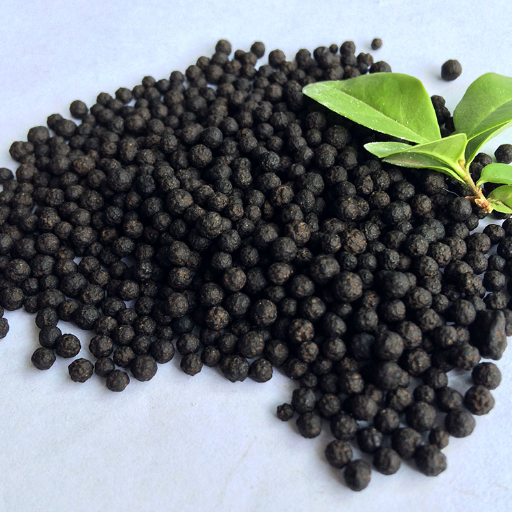
Application Methods for Various Plants and Crops
Leafy Vegetables (Spinach, Lettuce)
- Method: Fertigation
- Application: Dissolved in irrigation water
- Benefit: Direct root absorption
Fruiting Crops (Tomatoes, Peppers)
- Method: Foliar spraying
- Application: Critical development stages
- Benefit: Immediate micronutrient boost
Perennial Crops (Grapevines, Citrus Trees)
- Method: Drip irrigation
- Application: Gradual, phase-matched feeding
- Benefit: Long-term root health and productivity
Grains and Cereals
- Method: Large-scale spray applications
- Application: During tillering and heading stages
- Benefit: Maximum growth efficiency
Frequency of Application for Optimal Growth
| Growth Stage | Application Frequency | Concentration | Focus Nutrients |
|---|---|---|---|
| Seedling Stage | Weekly | Diluted (1:10 ratio) | Balanced, gentle feeding |
| Vegetative Growth | Biweekly | Full strength | High nitrogen |
| Pre-Bloom Phase | Every 10 days | Balanced | High phosphorus & potassium |
| Flowering & Fruiting | Weekly | Targeted application | Potassium-rich |
| Late-Season Maintenance | Monthly | Light application | Maintenance levels |
Best Practices for Using Water-Soluble Fertilizers
- Conduct soil analysis: Evaluate nutrient concentrations and deficiencies
- Adjust concentrations: Match fertilizer strength to crop growth stage
- Establish fertigation systems: Ensure even, efficient application
- Monitor water quality: Check pH and electrical conductivity (EC)
- Calibrate equipment: Maintain uniform application rates
- Follow phenological phases: Adapt nutrients to plant development stages
- Combine with organic amendments: Enhance soil structure and microbial activity
- Use sensor technology: Real-time monitoring for precision agriculture
Choosing the Best Organic Water-Soluble Fertilizer
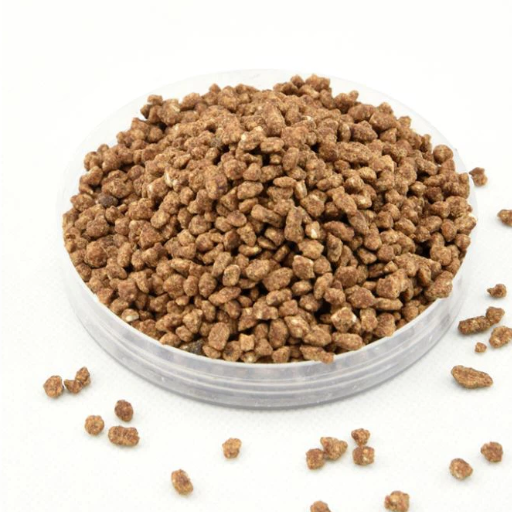
Comparing Nutrient Content: Nitrogen, Phosphorus, and Potassium
Understanding the role of each primary nutrient is crucial for making informed fertilizer choices:
| Nutrient | Role | Key Benefit | Deficiency Signs | Organic Sources |
|---|---|---|---|---|
| Nitrogen | Leafy growth | Green foliage development | Yellow leaves | Compost, Urea |
| Phosphorus | Root/Flower development | Strong root systems | Poor blooms | Bone meal |
| Potassium | Overall plant health | Disease resistance | Weak stems | Wood ash |
Factors to Consider: Plant Needs and Soil Type
Selecting the best organic water-soluble fertilizer requires careful consideration of multiple factors:
Plant-Specific Requirements
- Leafy vegetables: Higher nitrogen requirements
- Flowering plants: Increased phosphorus and potassium needs
- Fruiting crops: Balanced nutrition with emphasis on potassium
Soil Type Considerations
- Sandy soils: Require frequent, smaller applications due to rapid leaching
- Clay soils: Better nutrient retention, less frequent applications needed
- Loam soils: Optimal balance, standard application rates apply
Environmental and Sustainability Factors
- Choose products with explicit labeling and responsible sourcing
- Prioritize fertilizers that promote beneficial microbial activity
- Consider potential impact on nearby water bodies
- Evaluate long-term soil health implications
Frequently Asked Questions (FAQ)
A: Organic water-soluble fertilizer is a type of plant food made from natural sources that dissolves easily in water. It provides essential nutrients such as nitrogen, phosphorus, and potassium to plants, promoting healthy growth and blooming. This fertilizer is ideal for use in gardening, lawns, and vegetable patches.
A: This fertilizer delivers nutrients directly to the plant roots and leaves, enhancing nutrient uptake. By using an organic water-soluble solution, plants receive a balanced mix of essential elements, leading to improved growth, higher yields, and vibrant flowers and fruits. It’s especially beneficial for spring planting as it provides a quick nutrient boost.
A: Yes, organic water-soluble fertilizer can be used for lawns. It helps in promoting lush green grass and overall lawn health. The soluble nature of this fertilizer ensures that nutrients are easily absorbed, which can result in a thicker, healthier lawn, especially during the growing season.
A: Organic water-soluble fertilizers typically contain essential nutrients such as nitrogen, phosphorus, and potassium. Additionally, they may include beneficial organic matter, bone meal, and blood meal to enhance nutrient content and support plant growth. These nutrients are crucial for root development, flowering, and fruit production.
A: To apply organic water-soluble fertilizer, mix the recommended amount with water according to the manufacturer’s instructions. Use this nutrient solution to water your plants directly or as a foliar spray for quick absorption. Regular application during the growing season can significantly boost plant health and productivity.
A: Yes, organic water-soluble fertilizer is generally safe for a wide variety of plants, including flowers, fruits, and vegetables. However, it’s important to follow application guidelines to avoid over-fertilization, which can harm plants. Always monitor your plants’ response and adjust the application as needed.
A: Organic water-soluble fertilizers are derived from natural sources and often contain beneficial microorganisms and organic matter, leading to improved soil health. In contrast, synthetic fertilizers are chemically manufactured and may provide immediate results, but can harm soil structure and biodiversity over time.
A: Yes, you can create your organic water-soluble fertilizer using natural ingredients like compost tea, fish emulsion, or seaweed extract. These homemade solutions can provide essential nutrients and support healthy growth for your garden plants. Just ensure that the mixture is well-balanced for optimal results.
A: Organic water-soluble fertilizers offer quicker nutrient absorption and can be more effective for immediate plant needs compared to granular options. They are also easier to apply as a liquid solution, making it simpler to ensure even distribution of nutrients, which can lead to enhanced growth and better-blooming outcomes.



